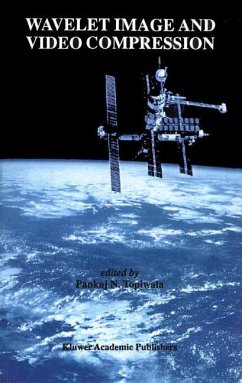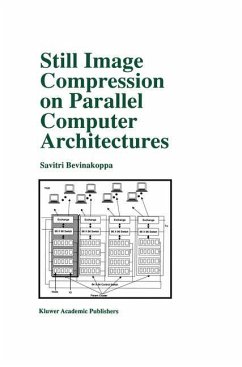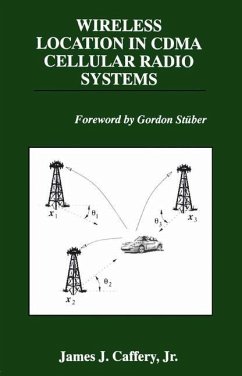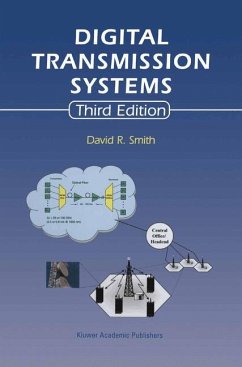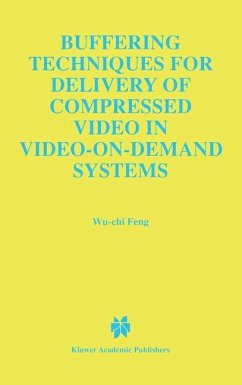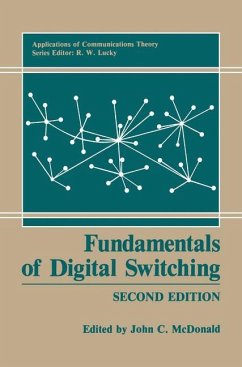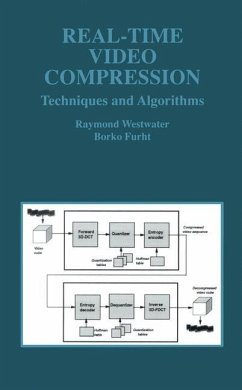
Real-Time Video Compression
Techniques and Algorithms
Versandkostenfrei!
Versandfertig in 6-10 Tagen
76,99 €
inkl. MwSt.
Weitere Ausgaben:

PAYBACK Punkte
38 °P sammeln!
Real-Time Video Compression: Techniques and Algorithms introduces the XYZ video compression technique, which operates in three dimensions, eliminating the overhead of motion estimation. First, video compression standards, MPEG and H.261/H.263, are described. They both use asymmetric compression algorithms, based on motion estimation. Their encoders are much more complex than decoders. The XYZ technique uses a symmetric algorithm, based on the Three-Dimensional Discrete Cosine Transform (3D-DCT). 3D-DCT was originally suggested for compression about twenty years ago; however, at that time the c...
Real-Time Video Compression: Techniques and Algorithms introduces the XYZ video compression technique, which operates in three dimensions, eliminating the overhead of motion estimation. First, video compression standards, MPEG and H.261/H.263, are described. They both use asymmetric compression algorithms, based on motion estimation. Their encoders are much more complex than decoders. The XYZ technique uses a symmetric algorithm, based on the Three-Dimensional Discrete Cosine Transform (3D-DCT). 3D-DCT was originally suggested for compression about twenty years ago; however, at that time the computational complexity of the algorithm was too high, it required large buffer memory, and was not as effective as motion estimation. We have resurrected the 3D-DCT-based video compression algorithm by developing several enhancements to the original algorithm. These enhancements make the algorithm feasible for real-time video compression in applications such as video-on-demand, interactive multimedia, and videoconferencing. The demonstrated results, presented in this book, suggest that the XYZ video compression technique is not only a fast algorithm, but also provides superior compression ratios and high quality of the video compared to existing standard techniques, such as MPEG and H.261/H.263. The elegance of the XYZ technique is in its simplicity, which leads to inexpensive VLSI implementation of any XYZ codec.
Real-Time Video Compression: Techniques and Algorithms can be used as a text for graduate students and researchers working in the area of real-time video compression. In addition, the book serves as an essential reference for professionals in the field.
Real-Time Video Compression: Techniques and Algorithms can be used as a text for graduate students and researchers working in the area of real-time video compression. In addition, the book serves as an essential reference for professionals in the field.





